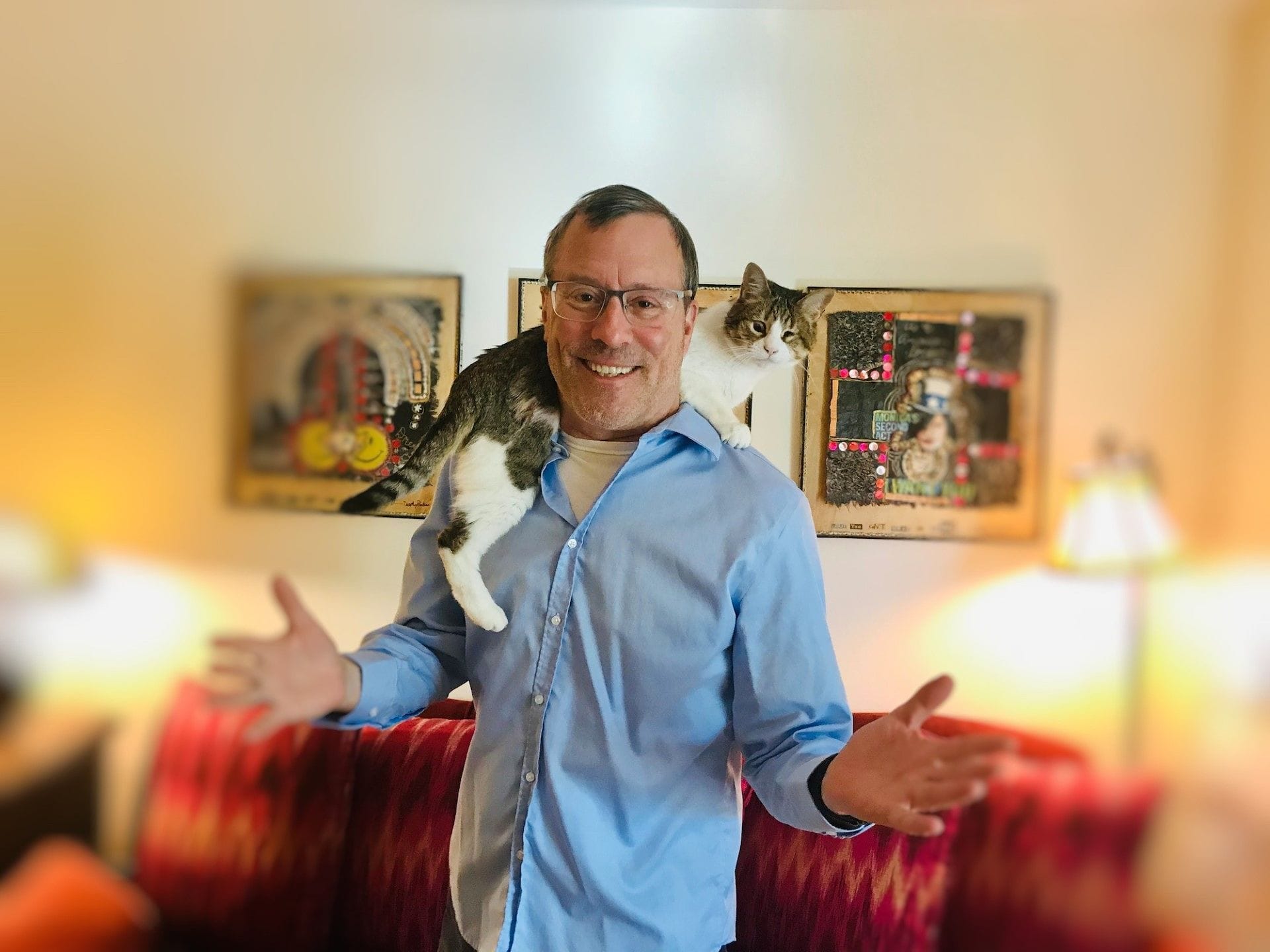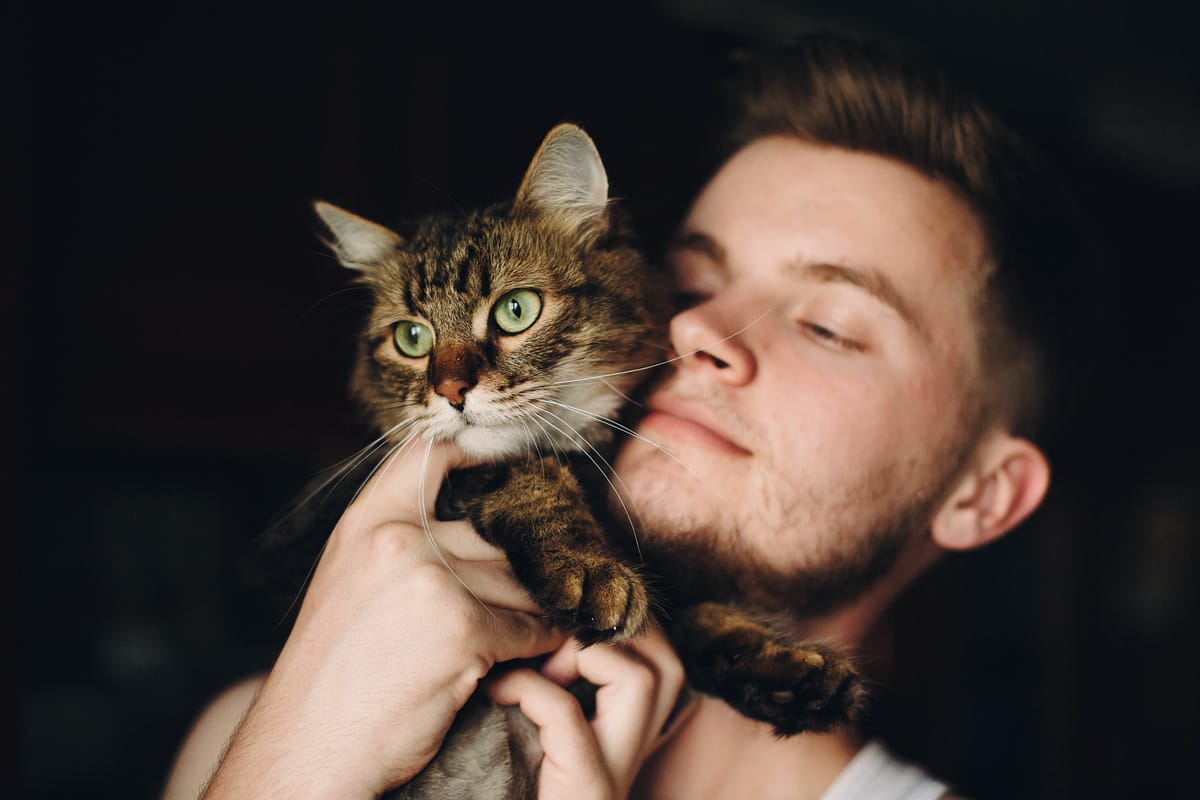For feline behaviorist Stephen Quandt, the path from a closeted, lonely teenager in the ’70s to a fulfilled gay man was paved with paw prints. In a deeply personal essay for Gaydar, Quandt reveals how his work saving cats ultimately saved him, helping him heal the wounds of a past where a happy future seemed impossible.


A Future He Couldn’t Imagine
Growing up in suburban New Jersey, Quandt felt completely disconnected from himself. The world around him offered no positive reflections of a gay life, leaving him unable to dream of love, a partner, or a family. He was, in his own words, stuck.
“I was stuck in this in-between world, where I was unable to imagine a romantic future for myself. Daydreams about sex daily, but no dreams about a life. No house, no picket fence, no partner, no boyfriend, no dating.”
This feeling of a futureless existence is a story many in the queer community can relate to, especially those who grew up before mainstream representation became more common. For Quandt, that feeling of being an outsider would eventually become the very thing that connected him to his life’s calling.


The Tornado That Changed Everything
His life took a dramatic turn in 2011. Then a theatrical lighting designer, Quandt volunteered with the ASPCA’s response team in the aftermath of the devastating Joplin, Missouri tornado. Amid the destruction, he met a cat he named Petunia. She was terrified, shut down, and unable to interact with anyone.
Day after day, Quandt spoke to her gently until, one day, she blossomed. The experience of relieving her suffering was a revelation.
“She came out so to speak. Her unspoken thought, ‘I made it, I’m alive again, thank you!’ being said by both of us at the same time.”
That moment was so powerful it set him on a new career path. He left the world of theater to become a professional in animal welfare, specializing in feline behavior. His story is a powerful example of a wider phenomenon experts have noted: the deep, often life-saving bond between LGBTQ+ individuals and animals, who are often seen as a form of chosen family, free of judgment.


Bearing Witness to Pain and Finding Purpose
The work, however, comes with a heavy emotional toll. Quandt speaks of “vicarious trauma,” a term recognized across the animal rescue community to describe the profound pain of witnessing constant suffering. He recounts a shattering experience with an emaciated cat, abandoned in a box to die, whose pain became his own.
Through therapy, he came to a stunning realization about the connection between his past and present.
“What I learned with this therapist is that I’ve been trying to find futures for these wonderful creatures who know no future, who wait in a cage for something good to happen. I find futures for the cats when I, as a gay child, felt and saw no future. In a way I am all of them.”
By saving these animals, he was retroactively saving the boy who felt he had no future. Each rescued cat was a step toward healing his own heart.
A New Chapter of Hope
Today, Quandt channels his unique understanding of trauma and hope into his work as a feline behaviorist and consultant in New York City. He’s turning his life’s mission into stories for others, recently publishing a children’s book, Happy Comes Home, about a shelter cat finding its forever family.
He also recently appeared on Gaydar’s own podcast, How To Date Men, sharing practical advice on how to build a loving bond with a feline friend—a full-circle moment where he now helps others find the same kind of connection that redefined his life.


Quandt’s journey is a testament to the unexpected ways we find healing and a powerful reminder that sometimes, the future we can’t even dare to imagine is waiting for us in the most unlikely of places.
“I grew up to get the life I always wanted but couldn’t imagine, a debt I owe to all the animals waiting in cages for their futures, yearning for better lives.”
* Photo from gaydar.vip









